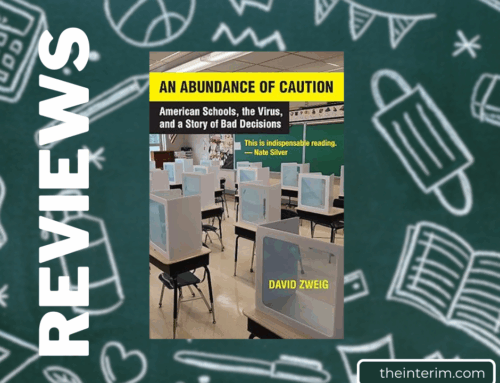 There are two rituals at the onset of every fall television season; in the first, someone looks over the crop of failed shows from the last season and announces some venerable genre – the three-camera sitcom, the police procedural – as being creatively dead, followed by the unexpected success of a show that singlehandedly revives it. The cycle’s tedious regularity is just one of the reasons why some of us, forced by either interest or bad luck (or an unfortunate combination of both) fondly wish for the day when the fall TV season goes the way of the buggy whip and the VHS machine.
There are two rituals at the onset of every fall television season; in the first, someone looks over the crop of failed shows from the last season and announces some venerable genre – the three-camera sitcom, the police procedural – as being creatively dead, followed by the unexpected success of a show that singlehandedly revives it. The cycle’s tedious regularity is just one of the reasons why some of us, forced by either interest or bad luck (or an unfortunate combination of both) fondly wish for the day when the fall TV season goes the way of the buggy whip and the VHS machine.
The last time the family sitcom was presumed dead was when The King of Queens left the air, an undignified finish, if it were true. Needless to say, there have been at least two shows this season that have exhumed the corpse, at least according to critics. The Middle and Modern Family, both on ABC (also presumed dead) would never be confused with Father Knows Best or The Danny Thomas Show, but they’re proof that, creatively at least, someone has found some life left in the genre. (Of course, given how trigger-happy networks are these days, I make no guarantees that either show will still be on the air by the time this column sees print.)
George Bush’s apparently unexpected win in the 2004 election was supposed to have prompted a frenzied call from Hollywood for shows set in the “red states” they blamed for the win; it’s apparently taken almost five years for the demand to be met, with a show that forthrightly situates itself in the “flyover states” in the middle of the United States during its title sequence and features Patricia Heaton of Everybody Loves Raymond fame as the mother of three kids marooned in the awkward states of life and wife of a man fatally incapable of dissembling.
Living from paycheque to paycheque, the family in The Middle look like candidates for the calamities of the current credit crunch. No such problems for the extended clan depicted in Modern Family, who seem to be living the California dream – big houses, big cars, cloudless skies and only the sorts of problems money can’t solve. The obvious fantasy of it all is undercut by the mock-documentary style of the show, where characters address the camera about their feelings and give the writers a huge break on tedious exposition. It goes without saying that school, work and family dynamics are the sole facets of life for the characters; The Simpsons are the only sitcom family semi-regularly seen in church nowadays, so priests and ministers only make walk-on appearances at weddings and funerals or when some sinister moral prod needs to be used to stir things up.
Both shows are pretty decent, but nowhere near as good as Glee, ABC’s big hit and the one undeniable success this season. The Middle suffers from too close a resemblance to Malcolm in the Middle, right down to the weird-even-for-a-kid youngest son, while Modern Family is too frequently overwritten. (It’s one thing to hear the doofus dad who only wants to be his kids’ best friend claim that knowing all the moves from High School Musical is one of the things that helps him relate to them; it’s a bit much to immediately cut to him doing them.) Both shows work from two presumptions, both of them thankfully true: the first being the fact that raising a family is the hardest work we’ll ever do; the other that we’re unlikely to really know – or misunderstand – anyone as well as the people in our family.
This isn’t meant as high praise. Both of these facts are encoded into the DNA of the family sitcom and nailing either of them is, as the clan patriarch in Modern Family claims when asked what makes a good dad, simply a matter of showing up. I wouldn’t agree with that, but I do know that the family sitcom remains perennial for the same reason we keep making shows about single people in their 20s – those years spent furthest away from the family orbit are as anxious and insecure as family life is fraught, but without the same rewards.
Flaws and all, I’m just glad that the family sitcom has bothered to show up; perhaps with persistence, and in spite of predictions of its demise, we might see something really insightful or even touching one day.




